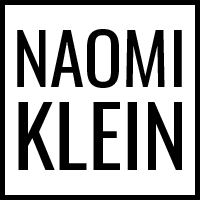The Business Press and Me: A Case of Unrequited Love
October 25th, 2007By Naomi Klein On a recent visit to Calgary, Alberta, I was taken aback to see my book on disaster capitalism selling briskly at the airport. Calgary is ground zero of North America's oil and gas boom, where business suits and cowboy hats are the de facto uniform. I had a sudden sinking feeling: did Calgary's business class think The Shock Doctrine was a how-to guide - a manual for making millions from catastrophe? Were they hoping for tips on landing no-bid contracts if the US bombs Iran? When I get worried about inadvertently fueling the disaster complex, I take comfort in the response the book has elicited from the world's leading business journalists. That's where I learn that the very notion of disaster capitalism is my delusion - or, as Otto Reich, former adviser to President George Bush, told BBC Business Daily, it is the work "of a very confused person". Many publications have seen fit to assign business journalists to review the book. And why not? They are the experts. Unabashed fans of the late free-market evangeliser Milton Friedman, these are our primary purveyors of the idea that ballooning corporate profits are on the verge of trickling down...

